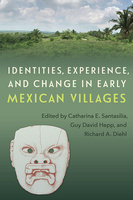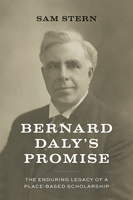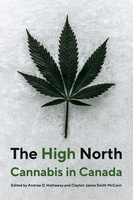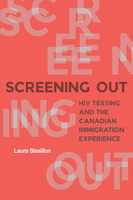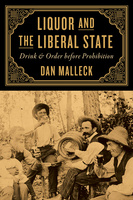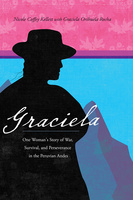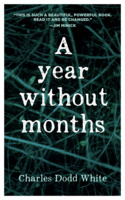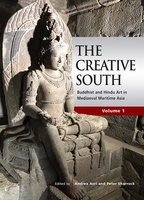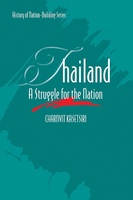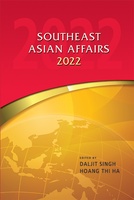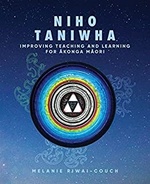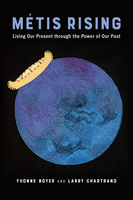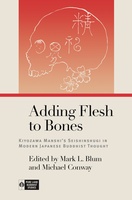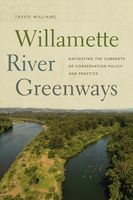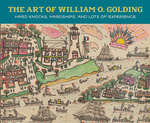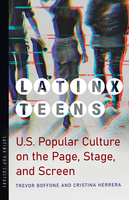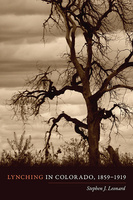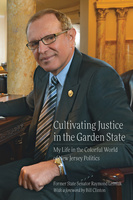Bernard Daly's Promise
The Enduring Legacy of a Place-based Scholarship
Published in cooperation with the Dr. Daly Project Association
Bernard Daly escaped the Irish Famine and with his family emigrated to America, where he became the town doctor in Lakeview, Oregon, and then a state legislator, Oregon Agricultural College regent, county judge, rancher, and banker. When he died in 1920, his estate, valued at about a million dollars, established a college scholarship for the youth of Lake County, ensuring that most of them could attend college.
It’s hard to imagine a place more distant from higher education than Lake County in south central Oregon, a county about the size of New Jersey with a population under eight thousand. When the Bernard Daly scholarship was first awarded in 1922, less than two percent of America’s youth went to college, and the percentage was even lower in Lake County.
Today, Lake County students are much more likely to go to college, graduate in four years without debt, go on to graduate school, have successful careers, and contribute to the larger community—all because of a scholarship established a hundred years ago by an immigrant who sought a better life, not only for himself but also for others.
Drawing on more than a hundred personal interviews, an extensive web-based survey, and archival materials, Bernard Daly’s Promise offers unique insights into the benefits of higher education and how it might best be supported—questions that we are struggling with today.
The High North
Cannabis in Canada
The High North brings together, for the first time, activists, advocates, and academics to evaluate the opaque origins and muddled legacy of cannabis legalization in Canada.
Screening Out
HIV Testing and the Canadian Immigration Experience
A critical, compassionate, and highly readable narrative-driven analysis, this is the first-ever inquiry into how the Canadian immigration medical program works in practice to screen out people with HIV.
Liquor and the Liberal State
Drink and Order before Prohibition
Cultural pastime, profitable industry, or harmful influence on the nation? Liquor and the Liberal State explores government approaches to drink and drinking in the late nineteenth and early twentieth centuries.
Histories of Drug Trafficking in Twentieth-Century Mexico
Graciela
One Woman's Story of War, Survival, and Perseverance in the Peruvian Andes
Graciela chronicles the life of a Quechua-speaking Indigenous woman in the remote Andean highlands during the war in Peru that killed seventy thousand people and displaced hundreds of thousands more in the 1980s and 1990s.
A Year without Months
“A beautiful, powerful book. Read it and be changed.”—Jim Minick
The Creative South
Buddhist and Hindu Art in Mediaeval Maritime Asia, volume 1
Southeast Asian Affairs 2022
Métis Rising
Living Our Present Through the Power of Our Past
Métis Rising brings together a vibrant collection of essays on history, politics, and culture that celebrate the resilience of Métis identity.
Adding Flesh to Bones
Kiyozawa Manshi’s Seishinshugi in Modern Japanese Buddhist Thought
Love, Daddy
Letters from My Father
A poignant collection of letters from Willie Morris accompanied by photographs by his son, David Rae Morris
Genre Worlds
Popular Fiction and Twenty-First-Century Book Culture
Confessions of a Southern Beauty Queen
A coming-of-age story of a young woman navigating a turbulent and changing South
Willamette River Greenways
Navigating the Currents of Conservation Policy and Practice
The Willamette River Greenway Program, first proposed in 1966 by future Oregon governor Bob Straub, envisioned a nearly two-hundred-mile assemblage of public lands along the Willamette River for public use and environmental protection. While the Greenway Program fell far short of Straub’s original proposal, today it provides for significant riverside lands with a range of public benefits. The Greenway Program also offers a useful lens through which to view the successes and failures of Oregon’s environmental protection policies over the past few decades.
Travis Williams, executive director of Willamette Riverkeeper, has spent countless hours paddling the Willamette, becoming familiar with its flora, fauna, and human neighbors. In Willamette River Greenways, he combines personal narrative about his experiences on the river with nuanced consideration of the controversies and challenges of the Greenway Program. Williams sheds light on current land stewardship practices, revealing the institutional and leadership failures that endanger the river’s water quality and habitat, and looks to the program’s future. He also takes readers with him onto the water, sharing what it’s like to travel the river by canoe, paying homage to the river’s natural beauty and the host of wildlife species that call it home.
Part policy analysis, part advocacy, and all love letter to one of Oregon’s great rivers, Willamette River Greenways offers valuable perspective to policymakers, land use managers, and recreational river users alike.
The Art of William O. Golding
Hard Knocks, Hardships, and Lots of Experience
Latinx Teens
U.S. Popular Culture on the Page, Stage, and Screen
Latinx Teens examines how Latinx teenagers influence twenty-first-century U.S. popular culture. The book explores the diverse ways that contemporary mainstream film, television, theater, and young adult literature invokes, constructs, and interprets adolescent Latinidad.
Joyce, Aristotle, and Aquinas
In this book, Fran O’Rourke examines the influence of Aristotle and Thomas Aquinas on James Joyce, arguing that both thinkers fundamentally shaped the philosophical outlook which pervades the author’s oeuvre.

